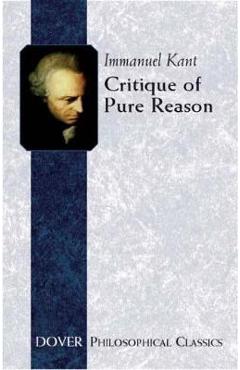
In his monumental Critique of Pure Reason, German philosopher Immanuel Kant (1724-1804) argues that human knowledge is limited by the capacity for perception.
He attempts a logical designation of two varieties of knowledge: a posteriori, the knowledge acquired through experience; and a priori, knowledge not derived through experience.
Kant maintains that the most practical forms of human knowledge employ the a priori judgments that are possible only when the mind determines the conditions of its own experience.
This accurate translation by J.
Meiklejohn offers a simple and direct rendering of Kants work that is suitable for readers at all levels.
David Steindl-Rast
100.16 Lei
Tony Candela
213.97 Lei
Joseph Jacobs
72.49 Lei
John Toland
153.00 Lei
Louise Aronson
111.60 Lei
Scott D. Sampson
105.97 Lei